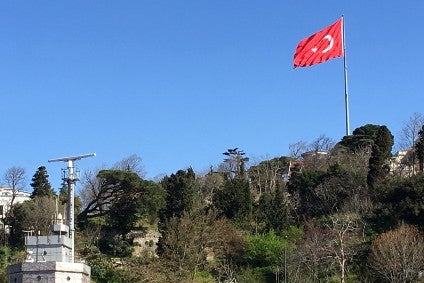
Turkish government agencies say they are working to attract further OEMs to the country as Ankara looks to renew its Customs Union deal with Brussels.
The Customs Union agreement – in place since 1995 – is widely expected to be endorsed by the European Commission although Turkey’s application to be a full member of the European Union (EU) is still largely on ice since the attempted coup in 2016.

Discover B2B Marketing That Performs
Combine business intelligence and editorial excellence to reach engaged professionals across 36 leading media platforms.
“After 1995 when we joined the Customs Union the structure changed and especially after 2000, companies started to develop this low cost strategy,” Republic of Turkey Investment Support and Promotion Agency coordinator, Kagan Yildirim told just-auto in his office on the banks of the Bosporus in Istanbul. “Turkey has taken a position within that.
“The Agency is trying to attract more OEMs and suppliers to Turkey [and] are trying to make the government aware of some issues to enhance value. This [automotive] is the number one export sector in Turkey. OEMs, together with the supplier side, are making US$28bn of export. This shows how important the sector is for the economy.
“That said, within this structure, the automotive industry in Turkey is almost dominated by Foreign Direct Investment; we have nine global OEMs [and] after France and Spain, Turkey is the largest maker for Renault [for example]. Turkey is seeking ways to improve [its] industrial profile – this is very much labour intensive.
“The government sees automotive as a crucial institution to help change in Turkey. We can’t compete with countries like Morocco or Romania – when you look into investment one of the things is labour cost – they are cheaper than here. [But] This country has a history of more than 60 years of manufacturing and engineering.”
Unlike some countries – notably Russia – Turkey does not impose localisation percentage rules but it is clearly in the interests of overseas OEMs and suppliers to manufacture regionally where possible and avoid exposure to exchange rate fluctuations.
One area where Ankara is especially focused however, is R&D centre incentivisation, with several mechanisms available to companies promoted by the Turkish Ministry of Industry and Science.
“We have around 700 R&D centres in Turkey and 117 come from automotive companies,” added Yildirim.
One of the key advantages Turkey has for overseas companies is a significant population of 80m, whose average age is just 30.
This could potentially be a key attribute for foreign manufacturers which are currently struggling in many cases to fill posts in the booming Visegrad 4 countries, while the expected re-signing of the Customs Union with the EU will ensure continued access to European markets.






